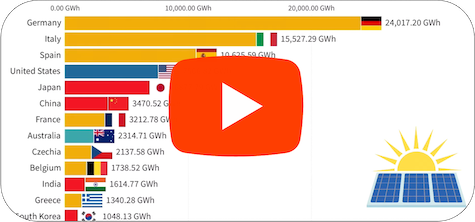Federal Budget 2020

PERSONAL TAXATION
Personal tax cuts brought forward to 1 July 2020
In the Budget, the Government announced that it will bring forward to 1 July 2020 the personal tax cuts (Stage 2) that were previously legislated in 2018 to commence from 1 July 2022. The Stage 3 tax changes remain unchanged and commence from 1 July 2024, as previously legislated:
- Stage 2 tax rates – was 1 July 2022, now 1 July 2020; and
- Stage 3 tax rates – unchanged; to commence on 1 July 2024, as previously legislated.
The Government will bring forward the Stage 2 personal income tax cuts to 1 July 2020 (from 1 July 2022, as previously legislated in 2018). The Treasurer said this will see more than 11 million taxpayers get an immediate tax cut backdated to 1 July 2020.
From 1 July 2020:
- the top threshold of the 19% personal income tax bracket will increase from $37,000 to $45,000; and
- the top threshold of the 32.5% tax bracket will increase from $90,000 to $120,000.
The new low income tax offset (maximum $700) has also been brought forward to 2020–2021, while the low and middle income tax offset (maximum $1,080) has been retained for 2020–2021.
Mr Frydenberg said more than seven million individuals are expected to receive tax relief of $2,000 or more for the 2020–2021 income year compared with the 2017–2018 tax settings. Low and middle income tax payers will receive relief of up to $2,745 for singles and $5,490 for dual income families.
Stage 3: from 2024–2025
The Stage 3 tax changes remain unchanged and commence from 1 July 2024, as previously legislated. From 1 July 2024, the 32.5% marginal tax rate will be cut to 30% for one big tax bracket between $45,000 and $200,000. This will more closely align the middle tax bracket of the personal income tax system with corporate tax rates. The 37% tax bracket will be entirely abolished at this time under the Government’s already legislated plan.
Therefore, from 1 July 2024, there will only be three personal income tax rates: 19%, 30% and 45%. From 1 July 2024, taxpayers earning between $45,000 and $200,000 will face a marginal tax rate of 30%.
With these changes, around 94% of Australian taxpayers are projected to face a marginal tax rate of 30% or less.
Low income offsets: new LITO brought forward and LMITO retained
The Government announced in the Budget that the new low income tax offset (LITO) will be brought forward to start as from the 2020–2021 income year. The new LITO was intended to replace the existing low income and low and middle income tax offsets as from 2022–2023. Although the existing LITO is scrapped, the low and middle income offset (LMITO) will be retained for 2020–2021.
Bringing forward the new LITO is a consequence of bringing forward to 2020–2021 the tax cuts that were scheduled to start in 2022–2023.
The maximum amount of the new LITO is $700. The LITO will be withdrawn at a rate of 5 cents per dollar between taxable incomes of $37,500 and $45,000 and then at a rate of 1.5 cents per dollar between taxable incomes of $45,000 and $66,667.
The amount of the LMITO is $255 for taxpayers with a taxable income of $37,000 or less. Between $37,000 and $48,000, the value of LMITO increases at a rate of 7.5 cents per dollar to the maximum amount of $1,080. Taxpayers with taxable incomes from $48,000 to $90,000 are eligible for the maximum LMITO of $1,080. From $90,001 to $126,000, LMITO phases out at a rate of 3 cents per dollar.
CGT exemption for “granny flats”
The Budget confirms that the Government will put in place a “targeted” CGT exemption for granny flat arrangements.
Under the measure, CGT will not apply to the creation, variation or termination of a granny flat arrangement providing accommodation where there is a formal written agreement in place. The Budget states that it will apply to arrangements that provide accommodation for “older Australians or those with a disability”. There are no further details as to what constitutes “older” or “disability”.
The exemption will only apply to agreements that are entered into because of “family relationships or other personal ties” and will not apply to commercial rental arrangements.
It is intended that the measure commence from 1 July 2021 (i.e. next financial year), subject to the passage of necessary legislation.
The measure was earlier announced by the Treasurer and Assistant Treasurer on 5 October 2020, the day the Government also publicly released the Board of Taxation’s report on the taxation of granny flat arrangements (the report had been provided to the Government in November 2019). That report recommended the CGT exemption.
First Home Loan Deposit Scheme: additional 10,000 places
The Government will allocate an additional 10,000 places for first home buyers under the existing First Home Loan Deposit Scheme.
Under the existing Scheme, eligible first home buyers can obtain a loan to build a new home or purchase a newly built home with a deposit of as little as 5%. The Scheme provides a Government-backed guarantee equals to the difference between the deposit (of at least 5%) and 20% of the purchase price. Applications can be made as part of the standard home loan application process through participating lenders. The Scheme has already helped almost 20,000 first home buyers.
The Treasurer said eligible first home buyers will also be able to take advantage of the Federal Government’s First Home Super Saver Scheme and HomeBuilder. First home buyers may also be eligible for State and Territory grants and concessions.
The additional 10,000 places under the scheme will be provided from 6 October 2020. The additional guarantees will be available until 30 June 2021.
BUSINESS TAXATION
Small business tax concessions extended to medium businesses
The Budget confirmed the Government’s announcement on 2 October 2020 that a range of tax concessions currently available to small businesses (aggregated annual turnover under $10 million) will be made available to medium sized businesses (aggregated annual turnover of $10 million or more but less than $50 million). The extension of these concessions to medium businesses will be delivered in three phases:
- From 1 July 2020, eligible businesses will be able to immediately deduct certain start-up expenses and certain prepaid expenditure.
- From 1 April 2021, eligible businesses will be exempt from the 47% FBT on car parking and multiple work-related portable electronic devices, such as phones or laptops, provided to employees (note that an FBT exemption for retraining redeployed employees will also apply from 2 October 2020).
From 1 July 2021:
- eligible businesses will be able to access the simplified trading stock rules, remit PAYG instalments based on GDP adjusted notional tax, and settle excise duty and excise-equivalent customs duty monthly on eligible goods;
- The time limit for the ATO to amend income tax assessments will be reduced from four to two years for eligible business for income years starting from 1 July 2021; and
- the ATO power to create a simplified accounting method determination for GST purposes will be expanded to apply to businesses below the $50 million aggregated annual turnover threshold.
The eligibility turnover thresholds for other small business tax concessions will remain at their current levels.
Outright capital assets deduction until 30 June 2022 for most businesses
Businesses with aggregated annual turnover of less than $5 billion will be enable to deduct the full cost of eligible capital assets acquired from 7:30pm AEDT on 6 October 2020 (Budget night) and first used or installed by 30 June 2022.
Full expensing in the year of first use will apply to new depreciable assets and the cost of improvements to existing eligible assets. For small and medium sized businesses (with aggregated annual turnover of less than $50 million), full expensing will also apply to second-hand assets.
Businesses with aggregated annual turnover between $50 million and $500 million can still deduct the full cost of eligible second-hand assets costing less than $150,000 that are purchased by 31 December 2020 under the current instant asset write-off rules. Businesses that hold assets eligible for the $150,000 instant asset write-off will have an extra six months (until 30 June 2021), to first use or install such assets.
Small businesses (with aggregated annual turnover of less than $10 million) can deduct the balance of their simplified depreciation pool at the end of the income year while full expensing applies. The provisions which prevent small businesses from re-entering the simplified depreciation regime for five years if they opt-out will continue to be suspended.
Loss carry-back from 2019–2020, 2020–2021 and 2021–2022
The Government will allow eligible companies to carry back tax losses from the 2019–2020, 2020–2021 or 2021–2022 income years to offset previously taxed profits in 2018–2019 or later income years.
Corporate tax entities with an aggregated turnover of less than $5 billion will be able to apply tax losses against taxed profits in a previous year, generating a refundable tax offset in the year in which the loss is made.
The tax refund will be limited by requiring that the amount carried back to not exceed the earlier taxed profits and to not generate a franking account deficit. The tax refund will be available on election by eligible businesses when they lodge their 2020–2021 and 2021–2022 tax returns.
Companies that do not elect to carry back losses under this measure can carry losses forward as normal.
Instant asset write-off: minor change
The following information sets out the rates and thresholds as they currently operate – but should be read in the context that the instant asset write-off rules are effectively irrelevant for most eligible assets purchased after 6 October 2020 until 30 June 2022. The rules set out three taxpayer categories.
For this reason, businesses with aggregated annual turnover between $50 million and $500 million can still deduct the full cost of eligible second-hand assets costing less than $150,000 that are purchased by 31 December 2020 under the instant asset write-off provisions. The tweak is this: businesses that hold assets eligible for the $150,000 instant asset write-off will have an extra six months, until 30 June 2021, to first use or install those assets.
The new outright deduction rules do not apply to second-hand goods, other than those acquired by small and medium businesses (with aggregated annual turnover of less than $50 million) – who can fully expense costs associated with second-hand goods.
Accordingly, there were no changes to the rules, other than a slight tweaking for costs relating to second-hand goods acquired by large businesses (with annual aggregated turnover between $50 million and $500 million).
Given the largesse of the new outright deduction for capital assets until 30 June 2022, the instant asset write-off rules have become temporarily irrelevant for most taxpayers (those with aggregated annual turnover of less than $5 billion).
Small business entities
Those taxpayers with aggregated turnover of less than $10 million and who satisfy the other tests in Subdiv 328-C of ITAA 1997 can qualify as small business entities for the purpose of the instant asset write-off rules. A depreciating asset is a low cost asset if its cost as at the end of the income year in which the taxpayer starts to use it, or installs it ready for use, for a taxable purpose is less than the relevant threshold: s 328-180.
For small business entities, when the asset is first acquired and first used/installed ready for use, or the amount is included in the second element of cost from:
- 3 April 2019 to 11 March 2020 – the threshold is $30,000
- 12 March 2020 to 31 December 2020 – the threshold is $150,000.
The threshold is due to revert back to $1,000 on 1 January 2021 (although it has not been $1,000 since 2015).
Medium business entities
The next category of taxpayer for instant asset write off purposes is medium sized business entities. This applies to those with an aggregated annual turnover of $10 million or more, but less $50 million.
For medium business entities, when the asset is first acquired and first used/installed ready for use, or the amount is included in the second element of cost from:
- 3 April 2019 to 11 March 2020 – the threshold is $30,000
- 12 March 2020 to 31 December 2020 – the threshold is $150,000.
There was an increase in the threshold from $30,000 to $150,000 when the COVID measures started. The instant asset write-off under s 40-82 will cease to be available to medium businesses from 1 January 2021.
Large business entities
The third category of taxpayer for instant asset write off purposes is large business entities. This applies to those with an aggregated annual turnover of $10 million or more, but less $500 million. The write-off has only been available to such entities while the COVID measures are in place.
For large business entities, when the asset is first acquired and first used/installed ready for use, or the amount is included in the second element of cost from:
- 12 March 2020 to 31 December 2020 – the threshold is $150,000.
to first use or install assets (rather than 31 December 2020). It otherwise ceases on 31 December 2020.until 30 June 2021As noted, taxpayers in this category have
Depreciation rules still relevant
There were no changes to the capital allowance rules in the 2020–2021 Federal Budget. This means that the depreciation rules as currently legislated will not change.
This is not a surprise, given the ability of pretty much all businesses to claim an outright deduction for new asset purchases from 7 October 2020 to 30 June 2022.
Note, though, that as part of its response to the COVID-19 pandemic, the Government had earlier enacted to allow businesses with aggregated turnovers of less than $500 million in an income year to deduct capital allowances for depreciating assets at an accelerated rate. This is a temporary measure – it is due to finish on 30 June 2021.
It is worth revisiting these rules because there may be acquisitions that may fall outside the outright deduction rules but still qualify for depreciation (eg certain second-hand goods). The rules still have an ongoing relevance for acquisitions made on or before 6 October 2020.
Due to the temporary nature of the concession, the measures were enacted in the Income Tax (Transitional Provisions) Act 1997 (TPA).
To be eligible for the accelerated depreciation, the depreciating asset must be (s 40-125 TPA):
- new and not previously held by another entity (other than as trading stock or for the purposes of reasonable testing or trialling) – this excludes most second-hand assets;
- first held on or after 12 March 2020 (a post-11 March 2020 asset); and
- first used or first installed ready for use for a taxable purpose on or after 12 March 2020 and before 1 July 2021.
A depreciating asset will not qualify for the accelerated depreciation if (s 40-120(3) TPA):
- the decline in value of the asset has already been deducted under the instant asset write-off rules;
- the decline in value of the asset is worked out using low-value and software development pools; or
- the decline in value of the asset is worked using Subdiv 40-F of ITAA 1997 (ie certain primary production depreciating assets).
In terms of working out the accelerated depreciation, different rules apply depending on whether or not an entity is using the simplified rules for capital allowances for small businesses.
An entity with aggregated turnover of less than $500 million in the income year that does not use the simplified depreciation rules may deduct an amount at an accelerated rate for qualifying assets. The amount the entity can deduct in the income year the asset is first used or installed ready for use for a taxable purpose is:
- 50% of the cost (or adjustable value where applicable) of the depreciating asset; and
- the amount of the usual depreciation deduction that would otherwise apply but calculated after first offsetting a decline in value of 50%.
A small business entity (with aggregated turnover less than $10 million in the income year) that uses the simplified depreciation rules may deduct an amount equal to 57.5% (rather than 15%) of the taxable purpose proportion of the adjusted value of a qualifying depreciating asset added to the general small business pool in an income year.
Corporate residency test to be clarified
The Government will make technical amendments to clarify the corporate residency test.
The law will be amended to provide that a company that is incorporated offshore will be treated as an Australian tax resident if it has a “significant economic connection to Australia”. This test will be satisfied where both the company’s core commercial activities are undertaken in Australia and its central management and control is in Australia.
The Government said that the corporate residency rules are fundamental to determining a company’s Australian income tax liability. The ATO’s interpretation following the High Court’s decision in Bywater Investments Ltd v FCT (2016) 104 ATR 82 departed from the long-held position on the definition of a corporate resident. The Government asked the Board of Taxation to review the definition in 2019–2020.
This measure is consistent with the Board’s key recommendation in its 2020 report: Review of Corporate Tax Residency and will mean the treatment of foreign incorporated companies will reflect the position prior to the High Court’s decision in Bywater.
The measure will have effect from the first income year after the date of the enabling legislation receives assent, but taxpayers will have the option of applying the new law from 15 March 2017 (the date on which the ATO withdrew Ruling TR 2004/15: Residence of companies not incorporated in Australia — carrying on a business in Australia and central management and control).
FBT exemption for retraining redeployed employees
The Budget confirmed the Government’s announcement on 2 October 2020 that it will provide an FBT exemption for employer-provided retraining and reskilling benefits provided to redundant, or soon to be redundant, employees where the benefits are not related to their current employment.
Currently, FBT is payable if an employer provides training to its employees that is not sufficiently connected to their current employment. For example, a business that retrains their sales assistant in web design to redeploy them to an online marketing role in the business can be liable for FBT. By removing FBT, the Treasurer said employers will be encouraged to retain redundant employees to prepare them for their next career.
The FBT exemption will not extend to retraining acquired by way of a salary packaging arrangement or training provided through Commonwealth supported places at universities, which already receive a benefit, or extend to repayments towards Commonwealth student loans.
In addition, the Government said it will consult on allowing an individual to deduct education and training expenses they incur themselves where the expense is not related to their current employment. In this respect, the Government acknowledged that the current rules, which limit self-education deductions to training related to current employment, may act as a disincentive to individuals to retrain and reskill to support their future employment and career.
The FBT exemption will apply from 2 October 2020.
Note that an FBT exemption from 1 April 2021 will also apply for eligible businesses on car parking and multiple work-related portable electronic devices, such as phones or laptops.
The proposed FBT exemption for retraining employees follows a Senate Committee recommendation calling for eligible outplacement training to be included under the FBT exemption. The interim report by the Senate Select Committee on Financial Technology and Regulatory Technology recently called on the Government to explore the inclusion of eligible outplacement training under the FBT exemption for eligible start-ups.
FBT record-keeping: reducing compliance burden
To reduce the FBT compliance burden, the Government will provide the ATO with the power to allow employers to rely on existing corporate records, rather than employee declarations and other prescribed records, to finalise their FBT returns.
Currently, the FBT legislation prescribes the form that certain records must take and forces employers, and in some cases employees, to create additional records in order to comply with FBT obligations.
This measure will apply from the start of the first FBT year (1 April) after the date the enabling legislation receives assent.
R&D Tax Incentive changes
The Government has announced a number of changes to the R&D tax offset measures contained in the Treasury Laws Amendment (Research and Development Tax Incentive) Bill 2019 and deferred the start date of those measures to income years starting on or after 1 July 2021.
In broad terms, the Bill proposes:
- increasing the R&D expenditure threshold from $100 million to $150 million and making the threshold a permanent feature of the law;
- linking the R&D tax offset for refundable R&D tax offset claimants to claimants’ corporate tax rates plus a 13.5% premium;
- capping the refundability of the R&D tax offset at $4 million per annum; and
- increasing the targeting of the incentive to larger R&D entities with high levels of R&D intensity.
Refundable tax offset increased
For companies with an aggregated annual turnover of less than $20 million, the refundable R&D tax offset will be set at 18.5% above the claimant’s company tax rate (compared to 13.5% in the Bill).
Annual cap on cash refunds abandoned
The Government will not proceed with the measure proposed in the Bill to impose an annual cap on R&D tax offset refunds of $4 million (with any remaining offset amounts being treated as non-refundable carry-forward tax offsets).
The Bill provided an exclusion from the annual cap for eligible expenditure on clinical trials registered as R&D activities. This carve out acknowledged opportunities for growth in the medical technology, biotechnology and pharmaceutical sectors. The Budget Papers do not provide any guidance as to whether clinical trials will be given special recognition by other means under the R&D incentive rules.
R&D intensity bands reduced
For companies with aggregated annual turnover of $20 million or more, the Government will reduce the number of R&D intensity tiers from three to two.
The Bill makes provision for R&D premium offsets (above the company’s tax rate) tied to a company’s incremental R&D intensity (notional deductions/total expenses).
State COVID-19 business support grants: NANE income
The Federal Government announced that the Victorian government’s business support grants for small and medium business will be non-assessable, non-exempt (NANE) income for tax purposes. The Victorian Government announced the grants on 13 September.
The Federal Government will extend this arrangement to all states and territories on an application basis. Eligibility would be restricted to future grants program announcements for small and medium businesses facing similar circumstances to Victorian businesses.
A new power will be introduced in the income tax laws to make regulations to ensure that specified state and territory COVID-19 business support grant payments are NANE income.
Eligibility for this treatment will be limited to grants announced on or after 13 September 2020 and for payments made between 13 September 2020 and 30 June 2021.
JobMaker Hiring Credit
The Budget announced that the Government will provide $4 billion over three years from 2020–2021 to accelerate employment growth by supporting organisations to take on additional employees through a hiring credit. The JobMaker Hiring Credit will be available to eligible employers over 12 months from 7 October 2020 for each additional new job they create for an eligible employee.
Eligible employers who can demonstrate that the new employee will increase overall employee headcount and payroll will receive $200 per week if they hire an eligible employee aged 16 to 29 years or $100 per week if they hire an eligible employee aged 30 to 35 years. The JobMaker Hiring Credit will be available for up to 12 months from the date of employment of the eligible employee with a maximum amount of $10,400 per additional new position created.
To be eligible, the employee will need to have worked for a minimum of 20 hours per week, averaged over a quarter, and received the JobSeeker Payment, Youth Allowance (other) or Parenting Payment for at least one month out of the three months prior to when they are hired.
New jobs created until 6 October 2021 will attract the JobMaker Hiring Credit for up to 12 months from the date the new position is created.
To be eligible, the employee must have received the JobSeeker Payment, Youth Allowance (Other), or Parenting Payment for at least one of the previous three months at the time of hiring.
The JobMaker Hiring Credit will be claimed quarterly in arrears by the employer from the ATO from 1 February 2021. Employers will need to report quarterly that they meet the eligibility criteria.
To attract the JobMaker Hiring Credit, the employee must be in an additional job created from 7 October 2020. To demonstrate that the job is additional, specific criteria must be met, requiring that there is an increase in:
- the business’s total employee headcount (minimum of one additional employee) from the reference date of 30 September 2020; and
- the payroll of the business for the reporting period, as compared to the three months to 30 September 2020.
Employer eligibility
Employers are eligible to receive the JobMaker Hiring Credit if they:
- have an ABN;
- are up to date with tax lodgment obligations;
- are registered for PAYG withholding;
- are reporting through Single Touch Payroll (STP);
- meet the “additionality criteria”;
- are claiming in respect of an eligible employee; and
- have kept adequate records of the paid hours worked by the employee they are claiming the hiring credit in respect of.
Newly established businesses
Newly established businesses and businesses with no employees at the reference date of 30 September 2020 can claim the JobMaker Hiring Credit where they meet the criteria. The minimum baseline headcount is one, so employers who had no employees at 30 September 2020 or whose business was created after this reference date will not be eligible for the first employee hired, but will be eligible for the second and subsequent eligible hires.
Supporting small business and responsible lending
The Budget confirmed that the Government will implement reforms to support consumers and businesses affected by COVID-19 to facilitate Australia’s economic recovery. The reforms are designed to reduce regulatory burden to ensure a timely flow of credit and resolution for distressed business. These include:
- introducing a new process to enable eligible incorporated small businesses in financial distress to restructure their own affairs;
- simplifying the liquidation process for eligible incorporated small businesses;
- support for the insolvency sector;
- introducing a standard licensing regime for debt management firms who represent consumers in dispute resolution processes with credit providers;
- removing duplication between the responsible lending obligations contained in the National Consumer Credit Protection Act 2009 and the Australian Prudential Regulation Authority (APRA) standards and guidance for authorised deposit-taking institutions (ADIs) and establishing a similar new credit framework for non-ADIs;
- enhancing the regulation of small amount credit contracts and consumer leases to ensure that the most vulnerable consumers are protected.
Wage subsidy for new apprentices
The Government will provide a capped 50% wage subsidy to businesses who take on a new Australian apprentice from 5 October 2020 to 30 September 2021.
It will be available to employers of any size or industry, Australia-wide, regardless of geographic location or occupation. There are two important caps:
- it is limited to 100,000 new apprentices or trainees in total; and
- the 50% subsidy will be limited to $7,000 per quarter ($28,000 per annum).
More information can be found on the Department of Education, Skills and Employment website. The payment will be paid in respect of commencing or recommencing apprentices; that is, it will be possible to re-employ former apprentices whose employment had been terminated.
The scheme will run from 5 October 2020 to 30 September 2021. The measure was earlier announced by the Prime Minister on 5 October 2020. The Department of Education, Skills and Employment states that the start date for claims is 1 January 2021; that is, payments will be made in arrears.
SOCIAL SECURITY
$250 cash payments for income support recipients
The Government will pay two $250 economic support payments for eligible income support recipients and concession card holders. The payments will be made from November 2020 and early 2021 to eligible income support recipients and concession card holders, including:
- Age Pension;
- Disability Support Pension;
- Carer Payment;
- Family Tax Benefit, including Double Orphan Pension (not in receipt of a primary income support payment);
- Carer Allowance (not in receipt of a primary income support payment);
- Pensioner Concession Card (PCC) holders (not in receipt of a primary income support payment);
- Commonwealth Seniors Health Card holders; and
- eligible Veterans’ Affairs payment recipients and concession card holders.
The $250 cash payments are tax exempt and will not count as income support for social security purposes. These cash payments follow the two $750 stimulus payments in April and July 2020 for social security and veteran income support recipients and concession card holders.
Paid Parental Leave: alternative work test
The Government announced in the Budget that it is also supporting new parents whose employment was interrupted by the COVID-19 pandemic by introducing an alternative Paid Parental Leave work test period for a limited time.
Under normal circumstances, parents must have worked 10 of the 13 months prior to the birth or adoption of their child to qualify, but that is being temporarily extended to 10 months out of the 20 months for births and adoptions that occur between 22 March 2020 and 31 March 2021. This measure is estimated to allow about 9,000 mothers to regain eligibility for Parental Leave Pay and allow a further 3,500 people to claim Dad and Partner Pay.
SUPERANNUATION
Super reforms: accounts to be stapled to members; best financial interests duty; other
The Government will provide $159.6 million to implement reforms to superannuation to improve outcomes for super fund members.
The Your Future, Your Super package, which will seek to reduce the number of duplicate accounts held by employees as a result of changes in employment and prevent new members joining underperforming funds, includes:
- YourSuper portal – the ATO will develop systems so that new employees will be able to select a superannuation product from a table of MySuper products through the YourSuper portal;
- stapled accounts – an existing superannuation account will be “stapled” to a member to avoid the creation of a new account when that person changes their employment. Future enhancements will enable payroll software developers to build systems to simplify the process of selecting a superannuation product for both employees and employers through automated provision of information to employers;
- MySuper benchmarking – from July 2021, APRA will conduct benchmarking tests on the net investment performance of MySuper products, with products that have underperformed over two consecutive annual tests prohibited from receiving new members until a further annual test that shows they are no longer underperforming. Non-MySuper accumulation products where the decisions of the trustee determine member outcomes will be added from 1 July 2022. The funding for this initiative will be met through an increase in levies on regulated financial institutions; and
- super trustees – best financial interests duty – to improve transparency and accountability of super funds, the Government will legislate to compel super trustees to also act in the best “financial” interests of their members.
The Treasurer said this package of reforms will help improve the $3 trillion superannuation system, and save members $17.9 billion over 10 years, by:
- having an individual’s super follow them – preventing the creation of unintended multiple superannuation accounts when employees change jobs. Instead, an individual’s super will follow them so that a new employer will pay their super contributions into the individual’s existing account;
- making it easier to choose a better fund – members will have access to a new interactive online YourSuper comparison tool which will encourage funds to compete harder for members’ savings. It will show a member’s current super accounts and prompt them to consider consolidating accounts if they have more than one;
- holding funds to account for underperformance – to protect members from poor outcomes and encourage funds to lower costs, the Government will require superannuation products to meet an annual objective performance test. Those that fail will be required to inform members by 1 October 2021. Persistently underperforming products will be prevented from taking on new members; and
- improving transparency and accountability – the Government will increase trustee accountability by strengthening their obligations to ensure trustees only act in the best financial interests of members. The Government will also require super funds to provide better information regarding how they manage and spend members’ money in advance of Annual Members’ Meetings.
All measures will commence by 1 July 2021.
Stapled accounts: how they will work
The first phase of the reforms is proposed to commence on 1 July 2021. Employers will no longer automatically create a new superannuation account in their chosen default fund for new employees when they do not decide on a super fund. Instead, employers will obtain information about the employee’s existing super fund from the ATO, if it is not provided by the employee. The employer will do this by logging onto ATO online services and entering the employee’s details. Once an account has been selected, the employer will pay super contributions into the employee’s account.
The second phase of the reforms will see the ATO provide a new service for employers. As of 1 July 2022, the ATO will enable digital software providers to give employers the option to automate the communications between the employer’s payroll system and the ATO system. Once this new service is adopted, it will remove the need for the employer to manually enter into their payroll system their employees’ superannuation fund details, reducing business administration costs.
Under both phases, if an employee does not have an existing super account (eg is new to the workforce) and does not make a decision regarding a fund, the employer will pay the employee’s super into their nominated default super fund.
Super trustees: best financial interests duty
The Government will legislate to compel super trustees to act in the best financial interests of their members. Consistent with the recommendation of the Productivity Commission to clarify what it means for a trustee to act in members’ best interests, the Government said it will put beyond doubt that trustees must act in the best financial interests of members. The measure seeks to remove ambiguity on how super trustees should be spending members’ money.
It will also give effect to the statement in the Explanatory Memorandum to the Superannuation Legislation Amendment (MySuper Core Provisions) Act 2012 that “RSE [Registrable Superannuation Entity] licensees will have a heightened obligation to act in the best financial interests of members that accept the default option”.
In addition to strengthening the duty owed by trustees, the onus on demonstrating compliance with the new duty will be reversed so that trustees must establish that there was a reasonable basis to support their actions being consistent with members’ best financial interests.
To ensure that the best financial interests duty is complied with by super funds, these changes will be accompanied by anti-avoidance measures, to ensure payments from the super fund to a third party (including an interposed or a related entity) do not undermine the intent of the changes. No materiality threshold will apply to the new duty.
The penalty provisions introduced by the Government under the Treasury Laws Amendment (Improving Accountability and Member Outcomes in Superannuation Measures No 1) Act 2019 will apply for breaches of the new duty for both the trustee and individual directors.
Super Guarantee: no change to rate increase set for July 2021
The Budget did not announce any change to the timing of the next Super Guarantee (SG) rate increase. The SG rate is currently legislated to increase from 9.5% to 10% from 1 July 2021, and by 0.5% per year from 1 July 2022 until it reaches 12% from 1 July 2025.
Prior to the Budget, there was speculation as to whether the Government may consider delaying this legislated SG rate increase in the interest of promoting spending and jobs, at the expense of workers’ retirement savings. Association of Superannuation Funds of Australia (ASFA) modelling has previously suggested that an average income earner aged 30 today, and on a $70,000 salary would have $71,600 less when retiring at 67 if the SG stays at 9.5%.
While the Budget did not announce any change to the start date for the SG rate increase, the Government probably does not need to decide this policy issue until next year’s Federal Budget in May 2021, ahead of the 1 July 2021 legislated change date for the SG rate.








































